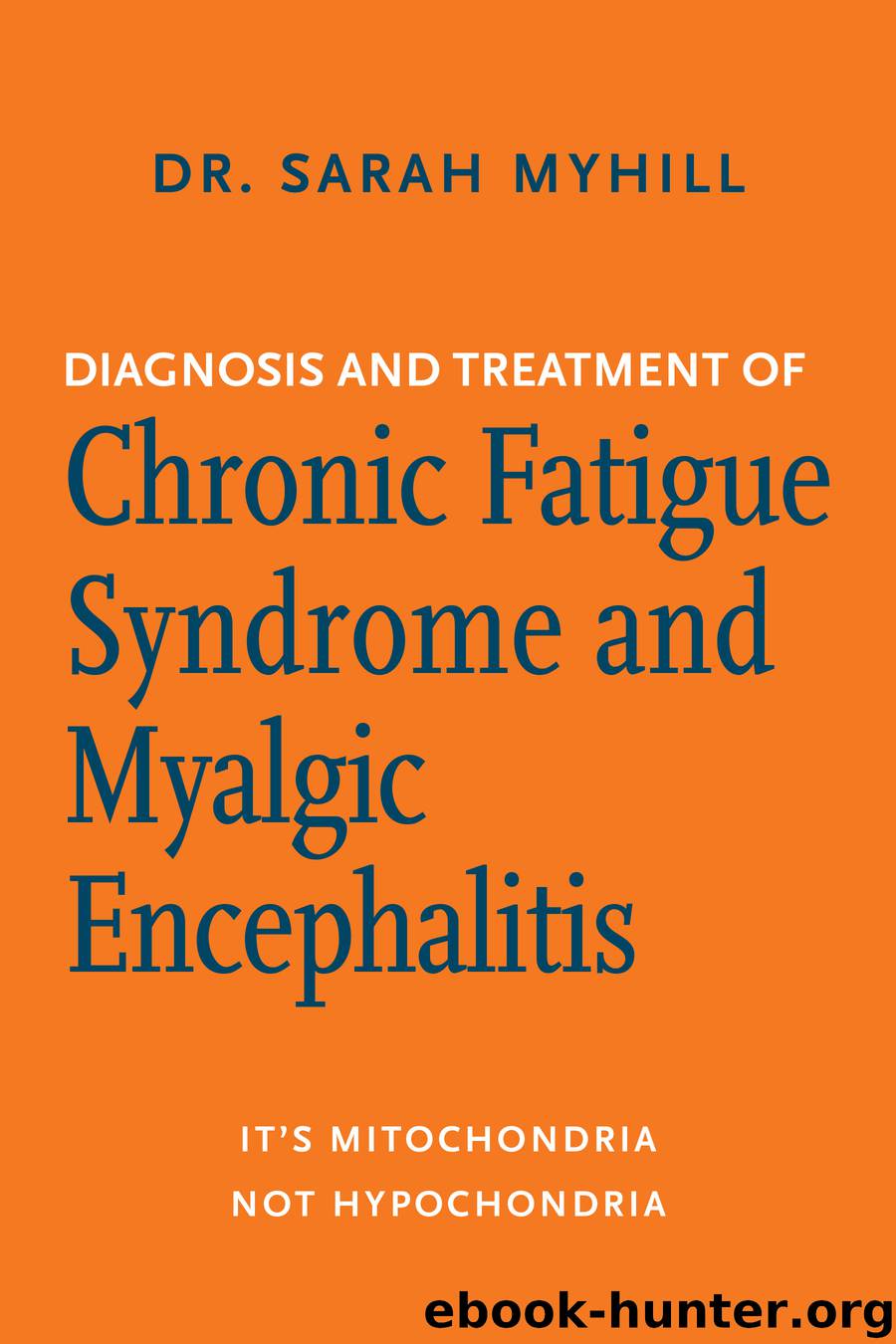Diagnosis and Treatment of Chronic Fatigue Syndrome and Myalgic Encephalitis by Sarah Myhill

Author:Sarah Myhill
Language: eng
Format: epub
Publisher: Chelsea Green Publishing
Published: 2018-03-26T17:45:00+00:00
CHAPTER 16
Sleep
Without a good night’s sleep on a regular basis all other interventions are to no avail. In the short term, I often advise whatever is necessary, possibly prescription drugs (see page 210), to ensure sleep. However, the goal must be to find out why sleep is poor and address those underlying causes. All living creatures require a regular ‘sleep’ (or period of quiescence) during which time healing and repair take place. You must put as much work into your sleep as your diet. Without a good night’s sleep on a regular basis, all other interventions are undermined.
We are all born as babies with the gift of sleep and somewhere down the line that ability may be lost. Retracing those footsteps can be helpful diagnostically. So let’s start with babies.
Poor fuel delivery mechanisms
When babies are born they are fully keto-adapted – that is to say, they run their entire metabolism on fats and ketones. During the first weeks of life, the baby’s brain uses an astonishing 60 per cent of all energy consumption in the body – another beautiful example of how the brain loves to run on fats and ketones. Unfortunately, we turn babies into carbohydrate addicts at a young age. Many babies are reared on bottled milk which has a high proportion of sugars and carbohydrates, and this is bad news for the developing brain and baby. Even those babies who are breast-fed may suffer – breast milk reflects what is going into the mother’s bloodstream and if she is a sugar and carbohydrate addict, then her baby will also become such. Indeed, we are currently seeing epidemics of oral thrush in babies – usually dismissed by nurses and health visitors as a minor annoyance, but symptomatic of the fact that already a baby is overwhelmed by sugar so that yeasts can comfortably make themselves at home. In the mouth this presents with a white coating of the tongue; in the scalp as cradle cap. Some baby girls even develop perineal thrush and the little boys get balanitis.
So this brings us to, I suspect, the commonest cause of insomnia – namely, nocturnal hypoglycaemia. Blood sugar levels fluctuate rapidly and as they fall there is an outpouring of adrenaline that wakes us up. This out-pouring of adrenaline is, I suspect, partly responsible for the nightmares and vivid dreams often experienced by CFS/ME sufferers. What makes this problem even worse in CFS/ME sufferers is alcohol – this has disastrous effects on blood sugar because it stimulates insulin production and inhibits the production of glucagon (the hormone that increases blood sugar), causing even wider fluctuations in blood sugar levels. Alcohol may come from the diet or the fermenting gut. The keto-adapted infant can happily burn fat and this fuels him through the night. The keto-adapted adult can do the same.
The treatment of nocturnal hypoglycaemia is clearly the ketogenic diet.
Allergy
At this point many parents will be saying, ‘Oh, but my baby never slept!’ A common cause of this is allergy and I suspect this starts with the hyperactive baby in the womb.
Download
This site does not store any files on its server. We only index and link to content provided by other sites. Please contact the content providers to delete copyright contents if any and email us, we'll remove relevant links or contents immediately.
Men In Love by Nancy Friday(5234)
Everything Happens for a Reason by Kate Bowler(4734)
The Immortal Life of Henrietta Lacks by Rebecca Skloot(4581)
Why We Sleep by Matthew Walker(4435)
The Sports Rules Book by Human Kinetics(4379)
Not a Diet Book by James Smith(3411)
The Emperor of All Maladies: A Biography of Cancer by Siddhartha Mukherjee(3155)
Sapiens and Homo Deus by Yuval Noah Harari(3068)
Day by Elie Wiesel(2781)
Angels in America by Tony Kushner(2652)
A Burst of Light by Audre Lorde(2597)
Endless Forms Most Beautiful by Sean B. Carroll(2478)
Hashimoto's Protocol by Izabella Wentz PharmD(2371)
Dirty Genes by Ben Lynch(2314)
Reservoir 13 by Jon McGregor(2300)
Wonder by R J Palacio(2204)
And the Band Played On by Randy Shilts(2199)
The Immune System Recovery Plan by Susan Blum(2057)
Stretching to Stay Young by Jessica Matthews(2038)
